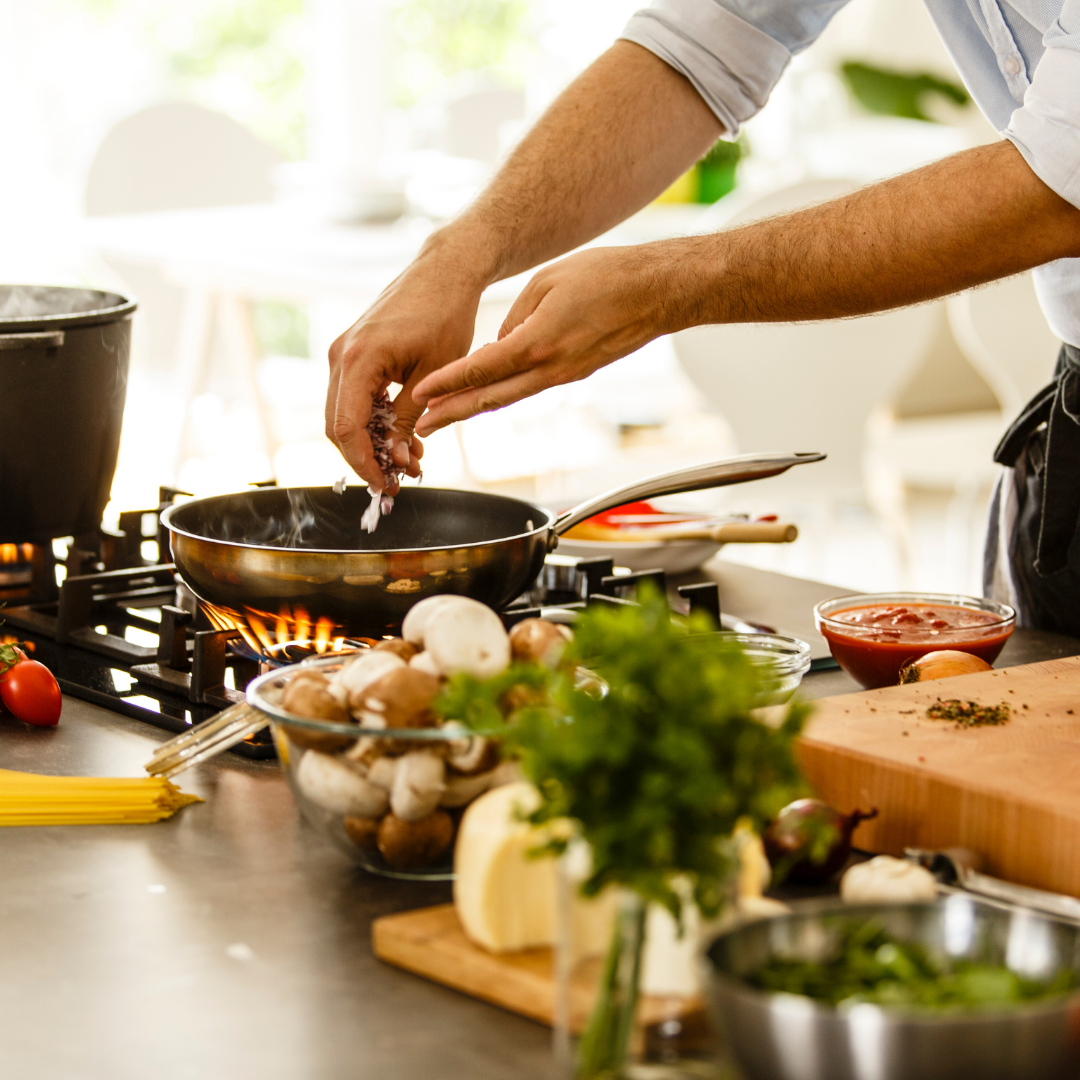Are you an aspiring chef and looking to learn how to cook some of the classics? Or maybe you recently took your first steps into kitchen magic and are looking to perfect your dishes? If that sounds like you, you may be looking for a few pointers on how to stay safe while cooking as a beginning chef.
Cooking for the first time is exciting! Yet, it can also be intimidating. But fear not! Making healthy, delicious meals does not have to be intimidating. Everyday cooking is nothing to fear. Let’s dive right in!
Starting a cooking business can be both exhilarating and stressful. When starting out, it is important to know the responsible factors, because it is always better to be safe than sorry. Maintaining kitchen hygiene while cooking is essential, and hence, selecting the right range hood can play a crucial role in this regard. When installing a range hood, be mindful of range hood depth. A hood inserted too far from the cooktop will be less effective at capturing steam, grease and other byproducts. Effectively positioned at the right depth, the range hood helps control kitchen humidity, minimizing the risk of mold and mildew growth and ensuring a clean food preparation environment. Considering range hood placement and depth early on will help set up a safe, hygienic cooking space as you embark on your new business.
In terms of clean-up during cooking, it’s vital to adopt a proactive approach. Although the focus may be on creating delicious meals for customers, cleanliness should not be overlooked, particularly after handling raw meat. Utilize disinfectant wipes to clean countertops, cutting boards, and knives, and ensure thorough disinfection of work surfaces following contact with raw meat. While engrossed in the culinary process, it’s easy to neglect the cleanliness of kitchen counters and cabinets. These surfaces, if not kept clean, can harbor harmful bacteria. Given that many foodborne illnesses originate from contaminated food and surfaces, maintaining cleanliness is crucial. Regularly wash cutting boards with hot, soapy water, designating separate boards for different food types. Utensils should also be washed thoroughly after each use, with a focus on not reusing them for different food categories.
Apart from all these, you should also be mindful of kitchen fires. They can be fatal, and they can occur even in the safest of situations and even with an experienced chef. Cooking fires are caused by essential cooking occupations, including combination occupations, chipping, and flaming. Essentially, any cooking occupation that causes flaming is producing a credential risk of fire. And while the risks can be lowered, they cannot completely be eliminated. All one can do is be a little careful while cooking, as well as keep fire extinguishing tools within reach. Besides, it would also be advisable for anyone starting out, to keep the contacts of the top quality fire and smoke damage restoration services professionals accessible for a post-cleanup, in case of an unfortunate situation.
But, now arises the question, is it safe to cook when you are a beginner? And is it safe to cook with sharp knives? Cooking is an activity that brings together a lot of different skills. These skills include learning how to cook, cooking specific dishes, and buying and storing food. Cooking is also an activity that can potentially lead to injuries.
Cooking is one of those things that many people feel they are good at, but it can be intimidating for others. Cooking, like any skill, takes time and practice. But when you get the basics down, cooking can be a fun and relaxing hobby. Learn to be as safe as possible in the kitchen by following these tips.
Cooking for Beginners for Safety Tips
- Gather Ingredients:
Make sure you have all of the necessary ingredients on hand.
- Practice:
Before you actually start cooking, practice your recipe. If it’s your first time making a certain dish, practice the cooking steps until you get it right.
- Measure:
Measure your ingredients before you begin cooking. Even if you are an experienced cook, always measure your ingredients.
- Clean:
Before you start cooking, clean your workspace. This ensures that it is a clean and safe cooking environment.
- Read:
Before you start cooking, read over the instructions. This will allow you to complete the steps properly.
- Cook:
Cooking as a beginner can be scary, especially if you’re cooking for loved ones for the first time. Whether you’re making a meal for your family or you’re putting together a dish for a dinner party, there’s a lot to learn. Fortunately, there are basic cooking recipes on sites similar to That Was Fresh that pretty much anyone can follow, and they can help you build confidence in the kitchen. As you get better with simple dishes, you can then start trying more complex recipes as well.
Cooking is a skill that everyone should have, but it’s especially important for novices who want to be as safe as possible in the kitchen. A few basic cooking safety rules can help. Look over the recipes you’ll be cooking. Make sure the ingredients list is correct. Checking that you don’t have too many ingredients will also save you a lot of time. And, of course, never guess how much an ingredient should be.
Cooking can be fun, but learning to do it safely can be even more fun. As a beginner in the kitchen, there are certain things you need to be familiar with, such as how to use a stove, oven, broiler, and steamer among others. Moreover, you ought to get the kitchen accessories necessary to ensure the safe handling of dishes and food. These would include the likes of some quality tongs, aprons, oven mitts (explore some options for oven mitts on rent.com), potholders and washing gloves as these would prevent you from injuring yourself in the kitchen.
Cooking is something that many people enjoy, but you might be a bit nervous the first time you do it. Before you know it, you’ve burned food, ruined a dish, or made a mess of your kitchen. While you can take precautions to minimize any chance of mishaps, there is no substitute for practicing. Fortunately, great chefs have made their mistakes before and are eager to share their knowledge and tips.

